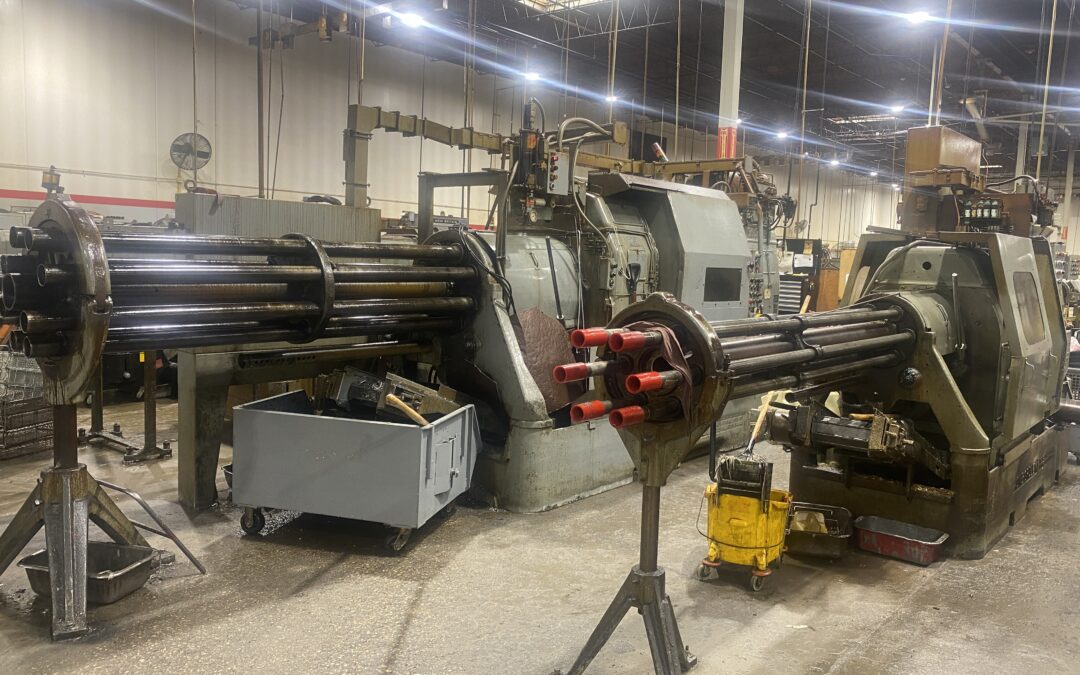In the fast-paced world of manufacturing, efficiency and precision are paramount. Screw machines, also known as automatic lathes, have been at the heart of this industrial landscape for over a century, evolving dramatically from their inception to the present day. As we look towards the future, these machines continue to be pivotal in high-volume production, making them indispensable in fields ranging from automotive to aerospace and beyond. This blog will explore the journey of screw machines, their current applications, and future developments, highlighting how companies like Avanti Engineering are leveraging this technology to propel their capabilities into a new era of manufacturing excellence.
The Early Days
The history of screw machines dates back to the 1870s when the first automatic screw machine was patented by Christopher Spencer. This machine was a radical innovation at the time, designed to produce screws and other small, turned components automatically and with great precision. Its development marked a significant leap forward from manual lathe work, offering faster production times and consistent part quality.
Mid-20th Century Advancements
As the industrial demands grew, so did the capabilities of screw machines. The introduction of cam-operated automatics in the early 1900s allowed for more complex operations and enhanced speed. These machines used a series of cams to control the machine’s tools, enabling them to follow precise, repetitive motions with little human intervention.
The Rise of CNC Technology
The real game-changer came with the advent of Computer Numerical Control (CNC) in the latter half of the 20th century. CNC technology transformed screw machines into even more powerful tools. By using computerized systems to control the machine tools, manufacturers could produce parts with higher precision, complex geometries, and tighter tolerances than ever before. This innovation also allowed for greater flexibility in production and reduced the time and cost associated with setting up for different parts.
Present Innovations: High-Volume Screw Machining Today
The Current State of the Art
 Today, high-volume screw machining is dominated by sophisticated CNC multi-spindle machines, such as the CNC Index MS-40-6. These machines can house multiple spindles simultaneously operating on several parts, which drastically increases throughput. For instance, the MS-40-6 can perform up to six machining operations simultaneously, making it ideal for mid to high-volume production of precision components.
Today, high-volume screw machining is dominated by sophisticated CNC multi-spindle machines, such as the CNC Index MS-40-6. These machines can house multiple spindles simultaneously operating on several parts, which drastically increases throughput. For instance, the MS-40-6 can perform up to six machining operations simultaneously, making it ideal for mid to high-volume production of precision components.
Efficiency and Precision
The current breed of screw machines offers unprecedented levels of efficiency and precision. They are equipped with advanced features like real-time monitoring systems, automated tool changers, and high-speed machining capabilities. This not only boosts productivity but also ensures each part is crafted to the highest standards of quality.
The Role of Automation
Automation plays a crucial role in modern screw machining. Automated feeding systems, combined with CNC precision, enable continuous operation with minimal downtime. This automation is critical in industries requiring high reliability and consistent output, such as automotive and medical device manufacturing.
Looking to the Future: Innovations on the Horizon
Advancements in Machine Intelligence
The future of screw machining lies in the integration of machine intelligence and connectivity. As part of Industry 4.0, screw machines are becoming smarter. With the incorporation of sensors and connectivity technologies, these machines can predict maintenance needs, adapt to changes in material properties, and optimize production processes in real-time, thereby further increasing efficiency and reducing waste.
Sustainable Manufacturing
Environmental sustainability is becoming increasingly important in manufacturing. Future developments in screw machining technology will likely focus on reducing energy consumption and utilizing more sustainable materials. Advancements in recycling technologies will enhance the ability to reuse the metal chips and offcuts produced during the machining process.
Customization and Flexibility
As market demands shift towards customization, screw machines will evolve to offer even greater flexibility. This will involve modular designs that can be quickly reconfigured for different production runs, minimizing downtime and responding more rapidly to market needs.
Avanti Engineering: Leading the Charge in Screw Machining Excellence
With over 50 years of experience, Avanti Engineering is a prime example of resilience and adaptability in the face of industry evolution. From our early days to our current standing, we have embraced technological advancements and are now gearing up to integrate more multi-spindle CNC machines like the MS-40-6 into our operations. This move is set to further our capability in mid to high-volume production of machined components, making us a leader in the field.
Are you looking to enhance your production capabilities while reducing costs and ensuring top-quality results? Reach out to Avanti Engineering today. Discover how our extensive experience, coupled with the latest in high-volume screw machining, can benefit your business. Let us help you save time and money with our cutting-edge solutions. Contact us to learn more about our services and how we can assist you in achieving your manufacturing goals.
